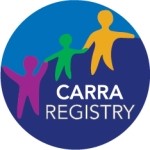Since its inception in 2015, the CARRA Registry, for which the DCRI serves as the coordinating center, has provided necessary infrastructure and data to support a wide range of clinical research projects.
When DCRI’s Laura Schanberg, MD, was a resident completing her medical training, one of her mentors was a pediatric rheumatologist. Schanberg soon knew that pediatric rheumatology—a field that requires knowledge of multiple systems within the body and often deals with complex cases in which other specialists can’t come up with a diagnosis—was her calling.

Today, Schanberg, who was a practicing pediatric rheumatologist for 30 years, is the co-principal investigator of the Childhood Arthritis and Rheumatology Research Alliance (CARRA) Registry. CARRA, a nonprofit organization for which Schanberg is a former president and founding steering committee member, was established in 2002 with the goal of creating collaborations to facilitate research in pediatric rheumatic diseases. In addition to being co-principal investigator for the registry, Schanberg is also the principal investigator for the registry’s coordinating center, which operates within the DCRI, as well as a co-chair of the CARRA Registry and Research Oversight Committee.

The CARRA Registry serves as the foundation for many research projects advancing knowledge in the field of pediatric rheumatology. The registry has enrolled over 10,000 pediatric patients with various rheumatic conditions, including juvenile idiopathic arthritis, juvenile dermatomyositis, systemic lupus erythematosus, and scleroderma. The registry team also plans to add patients with autoinflammatory disease later this year. The CARRA Registry aims to follows patients for at least 10 years, increasing the availability of longitudinal data. Since its inception in 2015, the registry has aided in data collection for comparative effectiveness studies, clinical trials, observational studies, pharmacosurveillance, and validation of outcome measures. CARRA and its member investigators receive funding to utilize the registry from a wide range of sources including foundations, NIH and government agencies, pharmaceutical companies, and medical associations.
The registry’s infrastructure enables CARRA investigators to have easy access to data for publications and grant proposals. Each participating site has a data use agreement in place that allows for three-way data sharing. This means that investigators can submit one data request to the CARRA Data Use Committee and receive data from 71 registry sites in the U.S., Canada, and Israel, without the burden of additional contracts.
Currently, there are two DCRI studies using the CARRA Registry as a data collection foundation—Limit JIA, which is led by Schanberg and aims to improve outcomes in children with juvenile idiopathic arthritis, and iPERSONAL, a pediatric lupus study led by DCRI’s Stephen Balevic, MD. The iPERSONAL study will be delivered in a direct-to-family approach, meaning it will be conducted in patients’ homes. In addition to working on these studies, the DCRI is also collaborating with CARRA member investigators on six manuscripts using registry data with several more in the works.
Prior to the development of the CARRA Registry, few non-industry clinical trials had been conducted in pediatric rheumatology, and those that had been conducted relied on a handful of sites. One of the principles that CARRA and the CARRA Registry was founded on was to engage as many sites as possible, and to this day, the team is still enrolling sites. Much of the team’s work has been focused on developing site infrastructure, as some of the engaged sites have little or no prior clinical research experience.
The registry has continued to evolve over the years with expansions to support additional research projects. The registry includes a biorepository, which allows investigators the flexibility to incorporate biosamples linked to robust, highly curated clinical data collected at multiple time points as relevant to a specific study’s aims. The DCRI team that supports the registry continues to innovate to make participation in the registry easier for patients. One ongoing project is the development of new approaches to long-term follow up, including text messaging, an online platform and a mobile app.
Recently, the DCRI team worked to quickly add COVID-19 as an event of special interest in order to track COVID-19 cases in registry participants. In response to COVID-19 restrictions at sites, CARRA and DCRI worked to allow sites to utilize data collected from telehealth follow-up visits. This allowed sites to continue to capture critical data elements, including medication changes and adverse events, even though patients could not be seen in clinic as usual.
A project management/site management (PM/SM) team in DCRI Outcomes directs the coordinating center work, working in all study phases from protocol design to data collection and analysis. The team works closely with DCRI's Outcomes Call Center, Safety Surveillance, Technical Data Services, and Statistics; and with finance, grants and proposals, and contracts. In addition to working with site principal investigators, sub investigators, and research coordinators, the PM/SM team interacts regularly with CARRA leaders including additional registry principal investigators, CARRA informatics investigators and staff at Boston Children’s Hospital, CARRA leadership and staff, CARRA Registry Associates, and the CARRA Registry Parent/Patient Advisory Committee.